How did you become a baker?
I really don't know. It just happened. Maestro Jeffrey Hamelman use to say, “we are not born bakers. We make ourselves bakers until the last second of our existence.” I believe it happened to me. After 20 years of working as an economist, I was not happy anymore. Becoming a baker was a challenge I gave to myself.
My little one had just been born. I decided it was time to do a life check and build a story my son could mirror. That he could look up to. So I gave up my successful career and started to build something new.
What sort of challenges do you find in baking in Brazil; flour, temperatures; tastes of people who may want to eat something more local?
In the beginning (five or six years ago) this type of baking was impossible in Brazil. Everything was a challenge. There was no good flour. The taste of people, the equipment, the know how, there was nothing. Long and natural fermentation was a distant concept. Hard golden brown crust was considered "burned bread.” I started from ground zero.
First I found a good Italian flour. Then I went to Europe and the United States to research a concept. When I came back, I knew I had a long road to pass. Now a lot of these challenges are gone. bread is simple. It is just flour, water, salt, yeast and love.
Where do you get inspiration?
Inspiration comes from the Latin phrase "to breathe into." it refers to an unconscious burst of creativity in a literary, musical, or other artistic endeavor. The Greeks believed that inspiration or "enthusiasm" came from the muses, as well as the gods Apollo and Dionysus. Similarly, in the Ancient Norse religions, inspiration derives from the gods, such as Odin.
Inspiration is also a divine matter in Hebrew poetics. In the Book of Amos the prophet speaks of being overwhelmed by God's voice and compelled to speak. In Christianity, inspiration is a gift of the Holy Spirit.
I believe everyone can be inspired from inside, from each breath you make you can find your own inspiration, your own God. As soon as you realized you have an inspiration, it’s a moment you realize you have been touched by God.
What sorts of breads define your style of baking?
Flour, water, salt, yeast, sometimes malt and always love. bread is simple. bread has no style, has no standard or pattern. Real bread begins inside your soul, pumped by your heart, getting real by your hands.
Do you think modern bakers have lost some of the craft that earlier generations knew?
I should say most of these "modern bakers” are worried with the result; with the open holed crumb and the size of their grignes or oven spring. These bakers are more worried about their Facebook "likes" or followers. They want the most beautiful bread that others defined as beautiful. To be an online “celebrity baker.” They don’t focus on developing themselves as humans or even bakers. bread making is a path. It’s a long path that makes you face an everyday evolution. Behind a great baker, there is always a humble human being.
Why is the baguette the simplest bread, but the hardest to make?
That's a great question. Baguette for sure is the simplest but hardest bread to make. Nowadays it is rare that you find a good baguette. The answer is simple. Baguettes take practice. People are too worried about holes or oven spring. They are not worried about developing their skills first. If you don't study and practice, there is no way to pass through all the steps to making a good baguette without a mistake.
The best baguette in the world, for me, is made by Maestro Michel Suas, from SFBI. He developed a whole week course that is only about making baguettes. It should be the first bread-making course for everyone who wants to be a baker. Unfortunately, not enough people think like him and that's why we see more boules and batards but fewer Baguettes.
Do you use local flour or pseudo cereals sometimes or ancient grains?
I wish I could use more. Unfortunately Brazil is not a wheat producer. That makes finding local wheat hard. We do have some local manioc flour, which is tremendous in flavor and aroma.
Local and ancient grains, for me, are the future all bakers should focus on.
But we will have to be open to start all over again and learn how to bake with these new grains. Believing that you will able to understand the complexity by reading Maestro Chad's Book is a tremendous mistake.
Ancient grains are complex. I was the first to bring kamut to Brazil few years ago. After almost four years, I can not see a single baker down here using it. That’s sad.
How do you respond to people whom as constantly for formulas?
One hundred percent flour, 80 percent water, two percent salt; simple, isn’t it? Why people still believe copy-and-paste is a solution?! To be a real baker is to enjoy the path, not the result. When we see a beautiful bread we should be inspired of it, never seduced to do the same. Because it is impossible to do so.
bread is so complex and affected by so many factors We have to understand that formulas are individuals and locals. New Bakers should look for the fun that are in the hits-and-misses, enjoying the path, not the result.
What makes a loaf good, or perfect; some of the characteristics your rate by?
There is no perfect bread. The good bread is the next bread. The moment a baker is satisfied with his bread, when he believes it is perfect, then he is not a baker, anymore.
Maestro Jeffrey told me once that even after 40 years of baking, he still doesn’t know how to lame a baguette well. A baker has to be humble enough to understand that baking is an everyday learning process and this puts us inside a eternal evolution.
What’s the ideal bakery?
For sure community local bakery. But people are vulgarizing this concept trying to get the advantages of this new back to core trend. A local community baker is much more than a label or even a trend. It is how our profession started. It is our essence. To understand this process, we have to stop and rethink what is going on with this new bakery trend and rethink what is priority.
How do you teach people to bake, first lesson?
We do not teach anyone how to bake. As I said above real bakers become bakers. They are not born bakers. That's why it is so hard to forge a good baker. Although we should give a direction for those who wants to become a baker. Whatever baker he wants to be, professional or home baker. The first lesson is to make them understand the path that they face to understand a real bakery.
Is there a best way to bake, or are each bakers style individual?
There is no right or wrong. There is no best way to do anything. Of course, we have to know what we are doing; follow the basics, have a deep knowledge about bakery and its properties. I like the idea of innovation, whatever you try to do. I like to create new procedures, formulas, and final product. Innovate, respect the basics and essence of bread making. That, for me, is the great fun inside a bakery. The most enjoyable part of everything we do. When you reach what you are looking for, that's heaven.
Do you believe that one recipe given to ten bakers results in ten different breads?
If we believe baking is the translation of our souls, and each baker has their own style, there is no way you have the same bread, even if we share the same formula. That's why it is so stupid believe that copying a formula will give you the bread you desire. Each baker will read the formula differently, will apply different procedures will have different soul energy to transform flour, water and salt in a bread.
A chef who was once a baker told me, “baking is boring, one dimensional.” What do you think?
Seriously? Bread making is everything but one dimensional. A baker is in essence a designer. They have to understand its concept. When I say “baker as designer,” I don’t mean cynical or narcissist besigner, but a Humanist designer. Someone who has to keep the human, its environment and necessities in the center. Thinking like that, bread has an objective – a reason to think about from the beginning where I want and what I need to get. Concept this, making all parameters – aroma, flavor, structure, inputs, objective etc. To create harmony. For sure, that will never be one dimensional.
What’s your quintessential loaf, one that defines you?
Ciabatta. Actually not a traditional ciabatta but, as Maestro Cavallari was inspired to make,his ciabatta by Pane D'Acqua.
I did the same and make a ciabatta inspired by my grandes Pane D'Acqua. It is so important for me. I’m not talking about the result that is really beautiful but the one that translates what I am as a baker and as a man.
Are breads with holes aesthetic? Or are they just a current trend?
That's a hard question. Alveolage (or holes) have a reason, a function in the context. They are a consequence of of procedures that have come through a bread baking journey.
These breads that, as consequence have more open crumb than others, for their characteristics, should not be so open. Bakers have to understand this aspect.
There is something I see with this natural fermentation craziness. There are breads in which we should use wild yeast. Others not. Holes or natural fermentation will never, by themselves, mean you bake a good bread. On the contrary, a lot of times we can over ferment or create too acidic breads. What matters is what and how your are using and making things happen.
If you were to go travel anywhere to try bread, where would the first place be?
San Francisco or Vermont … No doubt about it !
What do you think about when you bake?
I think how the bread I am making will impact someone’s life. How can this bread can bring people to start conversations, to start or stir friendships. To care for someone. I think of bread as bread. As it should be, the center of any meal. That's what give me strength to go further and focus only on what I do: bake real bread.
What do you like to do if you’re not baking?
Outdoor living and activities with my love, Juliana, to who I am so grateful, and my little one; they're my reason for everything.
Why do bread bakers like bicycles?
Maybe because riding gives as a similar freedom as bread baking. I love bikes and cycling. Unfortunately, as baker, I can not ride anymore because one ground means no bread, but my Pinarello is in the living room. It's my little treasure.
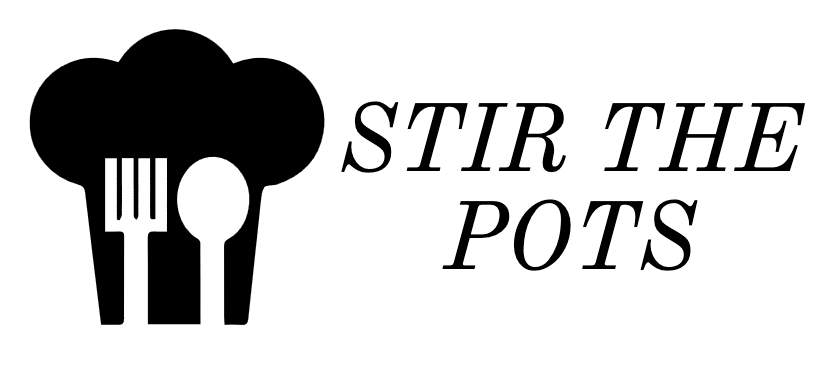
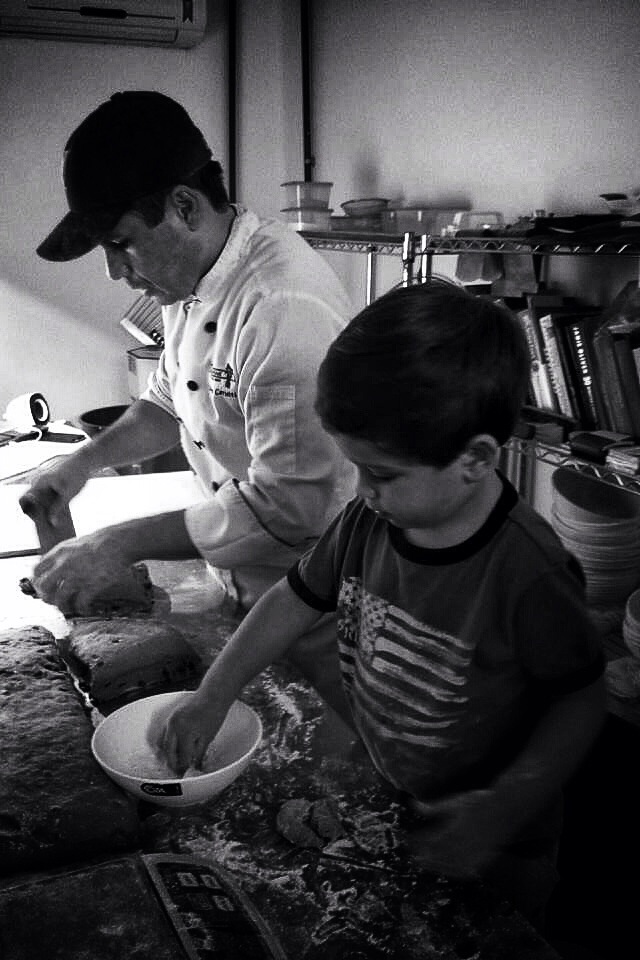
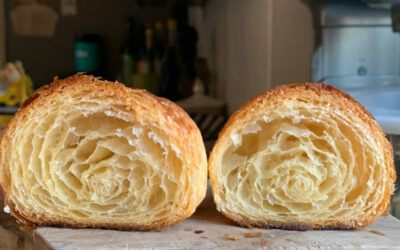
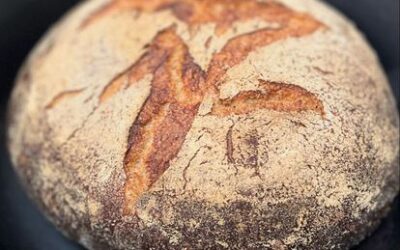
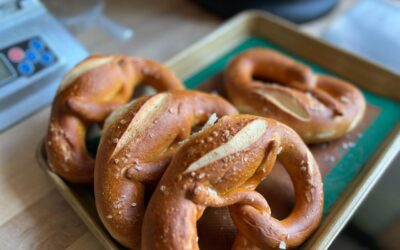
Thanks so much for sharing about this Baker! Enjoy your day! Love your posts from last week on the Pizza Dough and your trials. ARe you located in New York? Would love to stop in to your restaurant.
Janet
Yes Janet, in NY but my restaurant isn’t open to the public, it’s a private club..members only…thank
Jerem
Thanks for the reply! Too bad would love to come and chat!
Janet
So no Alum- from FCI are allowed to visit? Just asking ??? Le Diplome du Boilanger FCI 2005!
Janet
Hey Janet, sure pop in some time…visitors and friends accepted!
Thanks! I will love to come and visit!